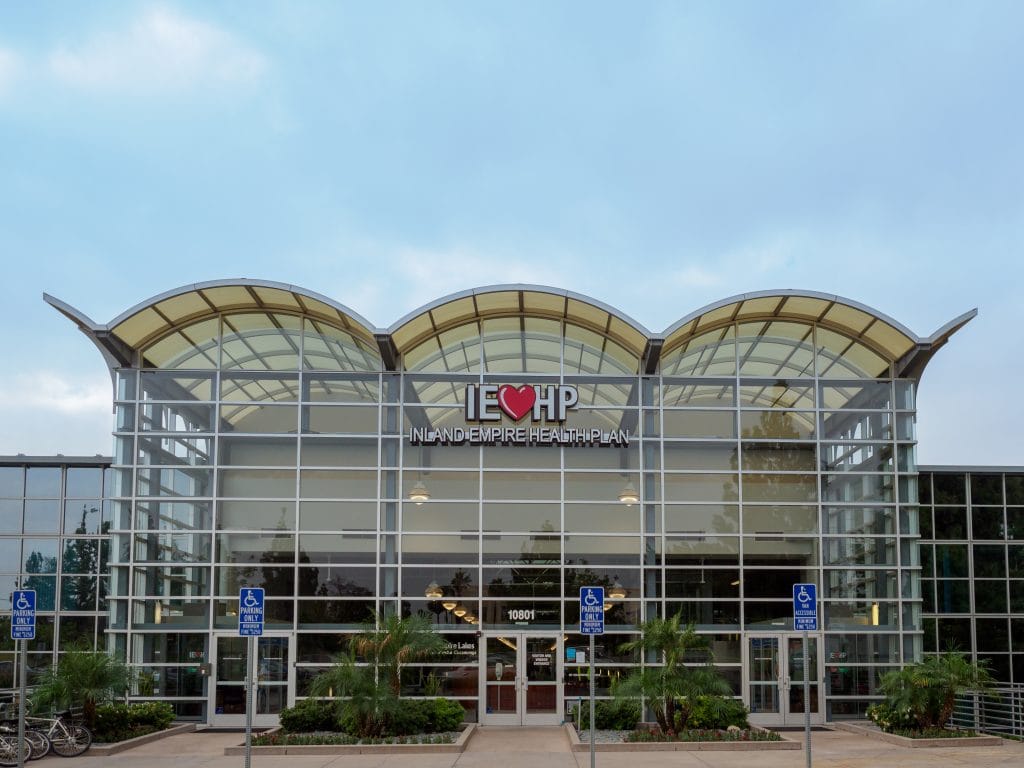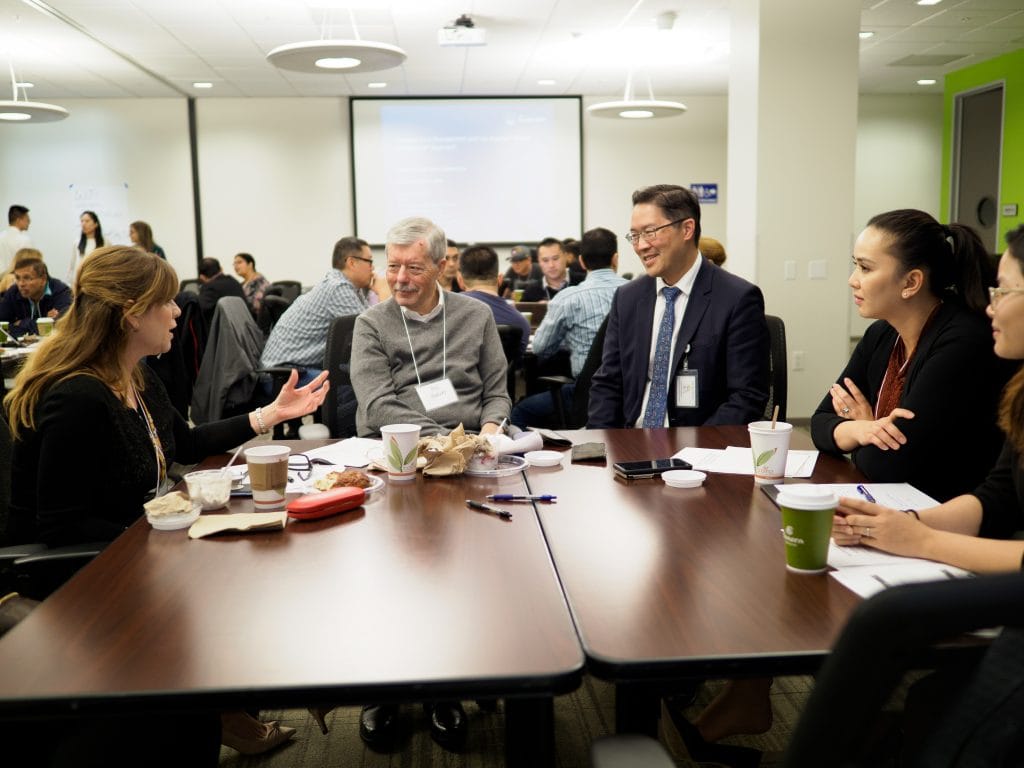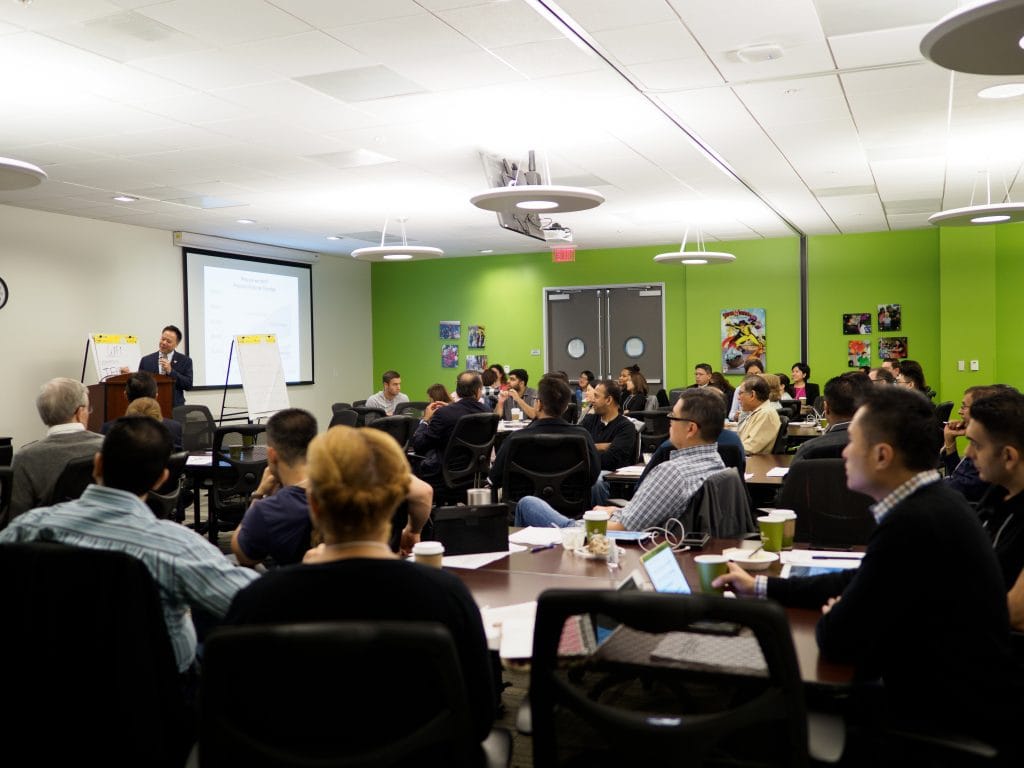Suboptimal use of medications in the U.S. is responsible for $528.4 billion in avoidable healthcare spending annually. Meanwhile, an aging population with numerous health needs and a declining physician workforce have combined to limit access to care. Steven Chen, associate dean for clinical affairs at the USC School of Pharmacy, is showing how pharmacists can help fix these problems.
A national leader in advancing the role of pharmacists in comprehensive medication management (CMM), Chen is launching the California Right Meds Collaborative in partnership with Inland Empire Health Plan (IEHP). The initiative will unite key stakeholders to build a regional and national network of pharmacists who can deliver high-impact CMM services through a sustainable, value-based payment model.
More than 70 healthcare leaders gathered on October 14 at the IEHP headquarters in Rancho Cucamonga to lend their support and discuss strategies for CMM expansion. “Together, we’re committed to developing a network of pharmacists who can deliver high-impact CMM services through a value-based payment model that will serve as a best practice for the other managed care plans in the state and beyond,” said Chen.
Chen — a three-time Pinnacle Award winner and recipient of a groundbreaking $12 million grant to study the impact of CMM — points to the IEHP as a best-practice example of a payer that sees the value of pharmacists and incorporates them into effective and innovative healthcare solutions. IEHP provides services for more than 1.2 million members — the equivalent of 25 percent of the population in San Bernardino and Riverside counties. The organization developed a pay-for-performance model in which pharmacies are compensated when certain health outcome goals are met.
Edward Jai, senior director and chief pharmacist of IEHP, was among those attending. “I think we can move the dial significantly over the next handful of years,” he said. “From a payer perspective, we want to support the collaborative as much as possible so we really answer the question of what is the best way that we can provide optimal medication outcomes.”

Tony Kuo, director of the Division of Chronic Disease and Injury Prevention at the Los Angeles County Department of Public Health, gave a presentation on local initiatives that address at-risk populations’ social and chronic disease management needs, including interventions that address uncontrolled hypertension.
He said he was impressed by the enthusiasm of the attendees to scale CMM in the community and hopes that the California Right Meds Collaborative will serve as a model for future state and health plan support for this intervention.
Other meeting participants observed that gathering pharmaceutical care practitioners for important conversations is key to continuing their impact on healthcare outcomes.
“People were present and they were engaged, and it speaks to what, as a society, we need to tackle head on,” said Loriann DeMartini, CEO of the California Society of Health-System Pharmacists, who offered an overview of the organization’s efforts on this front. “It’s all about busting those silos.”

Highlights of the daylong meeting included an update on national and local healthcare priorities, opportunities for pharmacists to manage high-risk patients, best practices in delivering high-impact CMM, and workshops to develop workflow changes, collaborative practice agreements, outcome measures and other essential CMM components.
Other speakers included:
- Ashish Patel, IEHP pharmacy clinical operations manager, and Doan-Trang (Nina) Duong, IEHP clinical pharmacist, who described IEHP’s pay-for-performance program and what IEHP needs from its pharmacy partners.
- Michael Hochman, director of the USC Gehr Family Center for Health Systems Science, gave examples of local and national value-based payment models, and listed opportunities and challenges for pharmacists in the evolving value-based payment environment.
- Ramesh Upadhyahula, owner of Desert Hospital Outpatient Pharmacy, presented on transforming a community pharmacy into a CMM service by employing layout changes that facilitate the provision of CMM, and assessing roles that non-pharmacy personnel can fulfill to help improve delivery and efficiency.
- Donna Luong, director of the pharmacy care transitions program at Cedars-Sinai Health System, shared best practices for delivering high-impact care transition services.
- Jan Hirsch, professor of clinical pharmacy and chair of the division of clinical pharmacy at the UC San Diego Skaggs School of Pharmacy and Pharmaceutical Sciences, and founding dean of the UC Irvine School of Pharmacy, offered community pharmacy best practices for delivering high-impact care transition services based on her experience with Ralphs pharmacies.
- Patrick Tabon, assistant professor of clinical pharmacy at the USC School of Pharmacy, shared community pharmacy best practices for delivering high-impact care-transition services based on the school’s meds-to-beds program.

Ramesh Upadhyahula, owner of Desert Hospital Outpatient Pharmacy, presents on transforming a community pharmacy into a CMM service. (Photo by Reynaldo Obrero)
The launch meeting’s momentum will continue through monthly webinars, which will serve as a forum for participants to share updates and ideas on ways to innovate, best practices and challenges, and solutions to integrate CMM services into community pharmacies. A leadership council will also continue the collaborative’s planning and implementation, and a second live meeting simulcasted to multiple locations in California and beyond will be held in the spring.
To learn more and keep up-to-date on the California Right Meds Collaborative, contact Steven Chen at chens@usc.edu.


